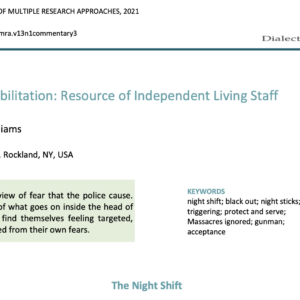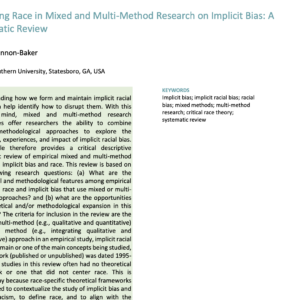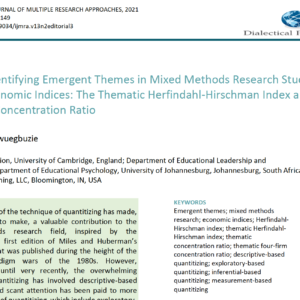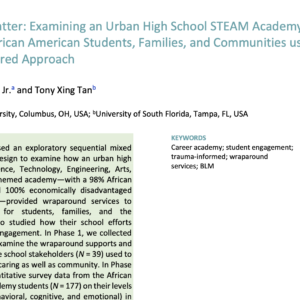13(2). 04. Online Learning Challenges Experienced by University Students in the New York City Area During the COVID-19 Pandemic: A Mixed Methods Study
$0.00
Description
Author
Donald R. McClure(a), Emmanuel O. Ojo(b), Mary Beth Schaefer(a), David Bell(c), Sandra Schamroth Abrams(a), and Anthony J. Onwuegbuzie(d)
(a) Department of Curriculum and Instruction, St. John’s University, New York, NY, USA; (b) School of Education, University of the Witwatersrand, Johannesburg, South Africa; (c) Teacher College, Western Governors University, Salt Lake City, UT, USA; (d) Faculty of Education, University of Cambridge, England
Abstract
This mixed methods research study explored how emergency remote teaching and learning, enacted in March 2020 due to the COVID-19 pandemic, impacted university students. We asked: What, if any, challenges did students face that hindered their ability to learn successfully online? In Spring 2021, a Qualtrics survey was emailed to 1,481 undergraduate and graduate students at a university in New York City, and students were asked to forward the survey to friends in and beyond the university. A total of 254 (17.2%) responded; 59.6% were graduate students and 69.9% were full-time students. The survey had closed- and open-ended items. The open-ended item analyzed in the current study asked students to identify any online learning challenges. Responses were analyzed via a fully integrated, four-phase mixed methods analysis: constant comparison; a crossover mixed analysis by two coders that yielded an intensity-based, inter-respondent matrix of themes; descriptive-based quantitizing; and inferential-based quantitizing via a canonical correlation analysis and Fisher’s Exact Tests. The most prevalent findings were No Challenges (34.26%), Living Environment (25.93%), Technology-Related (20.37%), and Overall Learning Experiences (19.44%). Students experiencing No Challenges were statistically significantly more likely to report that they had full access to their own computer (p = .006) and reliable Internet connection (p = .001). For Living Environment, students noted major life issues that created challenges: sickness, crowded spaces, and multiple jobs, including serving as a caregiver. Technology-Related findings revealed student dissatisfaction with the online learning experience. For Overall Learning Experiences, students described their need for interactive learning experiences and responsive professors. A key conclusion is that higher education institutions should create more meaningful student learning experiences, develop student-centered pedagogies, and provide greater equity in university learning communities.




